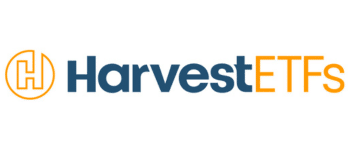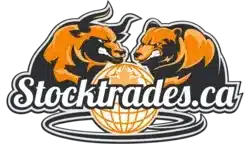Get Easy Blockchain Exposure With These Niche Canadian ETFs
Key takeaways
Volatility and Long-Term Potential – While blockchain ETFs can be volatile, they also present strong long-term growth opportunities as blockchain adoption expands.
Blockchain Growth Exposure – These ETFs provide exposure to companies benefiting from blockchain technology and digital infrastructure.
Canada’s Role in Crypto Investing – Canadian markets have been at the forefront of crypto-related ETFs, offering investors diversified access to blockchain innovations.
One ETF I like way better than the ones on this list.The interest in Blockchain has surged as of late as Bitcoin becomes more and more relevant. Crypto is no longer an investment option for tech junkies and misfits; it has made the watchlist or even the portfolio of many mainstream investors.
Naturally, the two are inherently linked, but one common mistake investors make is to assume one equals the other.
Unfortunately, it is a mistake made by many, especially those who are just learning how to buy stocks, and one that could not be further from the truth. Blockchain is not Bitcoin, and Bitcoin is not Blockchain.
Without going into great technical detail, Blockchain is the technology that underpins the Bitcoin cryptocurrency. Blockchain powers Bitcoin, and while it was initially created for Bitcoin, they are not one and the same.
Decentralization
Blockchain is a decentralized database or a ledger that is distributed across many computers. Hence, it is referred to as decentralized; arguably, it is what makes Blockchain’s technology so revolutionary and why the use cases expand far beyond that of cryptocurrencies.
Many believe that Blockchain’s decentralization will revolutionize the way companies do business. For one, it is largely considered to be safe as there is no single point of attack for which to target. Secondly, Bitcoin has made the use case for making digital transactions much easier (and secure).
Finally, given its nature, Blockchain leads to greater transparency and increased accuracy and can ultimately lead to significant cost reductions.
The potential use cases for Blockchain are too many to list but include things such as executing contracts, maintaining records and auditing. Today, organizations worldwide are investigating how they can utilize and adopt Blockchain technology.
How can individual investors benefit?
Exchange Traded Fund (ETF) investing is one of the simplest ways of gaining exposure to a broad base of assets. This is even more true in the situation of blockchain stocks. They are heavily volatile, and choosing the wrong company can lead to large scale losses. Broad diversification doesn’t eliminate this risk, but mitigates it.
Canadian ETFs cover markets, sectors, and industries and, in some cases, get down to specific niche industries. Blockchain is one such niche industry, and in Canada, there are two solid options for investors.
Since these ETFs trade on the Toronto Stock Exchange, buying them is as simple as buying a stock using your favourite online broker. It’s a simple way to get access to an exciting new type of asset.
The Best Blockchain ETFs in Canada
Actively managed blockchain-focused ETF
Harvest’s Blockchain Technologies ETF (TSX:HBLK)

HBLK is an actively managed ETF that invests in global companies involved in blockchain technology. This includes firms engaged in blockchain development, cryptocurrency mining, and related services. The fund aims to provide exposure to companies driving innovation in decentralized finance and enterprise blockchain solutions.
Blockchain-adjacent ETF focusing on computing power
Global X’s Big Data and Hardware ETF (TSX:HBGD)

HBGD provides exposure to companies that power blockchain networks through hardware infrastructure, including semiconductor firms, cloud computing providers, and data analytics companies. It captures the broader technological backbone that supports blockchain applications.
HBLK vs HBGD
Interestingly, both ETFs offer something different and can be held together without worry of much overlap. Harvest’s fund is likely to be less volatile, given its exposure to some of the larger and more traditional tech companies.
Horizons appears to be the purest play of the two; however, it comes with additional risk, given the makeup of its holdings. Although greater risk comes with greater reward, should one of HIVE or RIOT falter, the fund could take a significant hit.
As of writing, HBLK is also trading at a higher valuation. This isn’t surprising because the blockchain industry is struggling as of late, depressing the earnings of the underlying companies. (Also see how Canadian covered-call ETFs are affected by market trends).
In such a scenario, I’d expect the fund with the higher risk profile to trade at more expensive valuations.
Overall, both look like solid options. Which fund an investor prefers really comes down to personal choice. HBLK has more exposure to larger tech names with a more indirect interest in the Blockchain, while HBGD has a more globally diverse portfolio.
